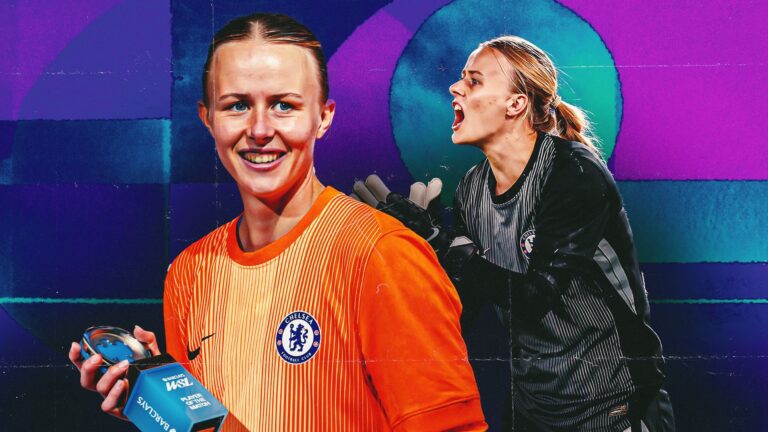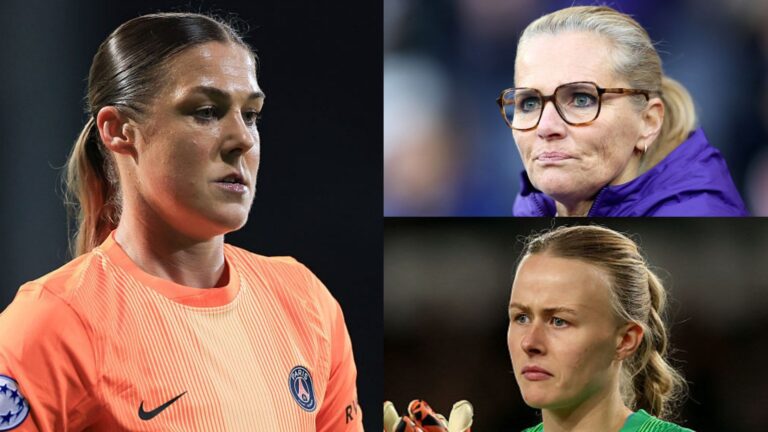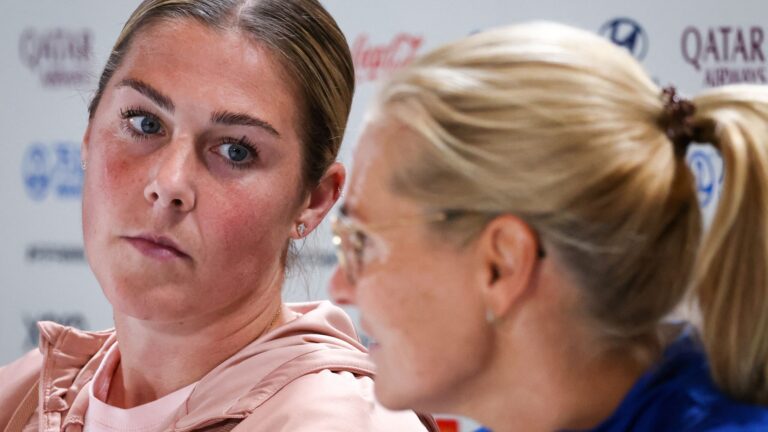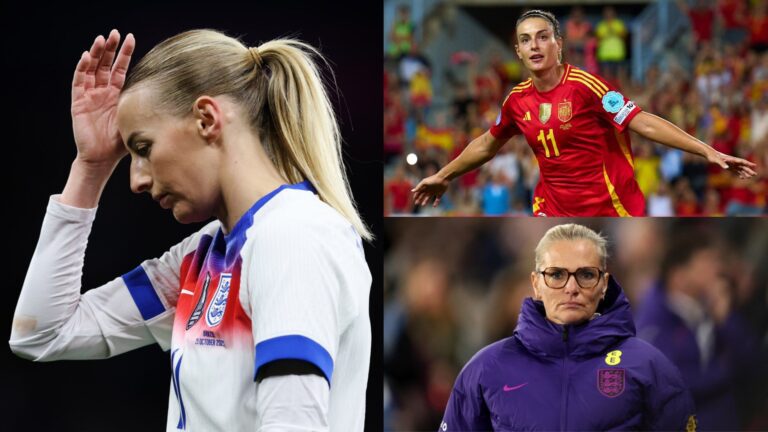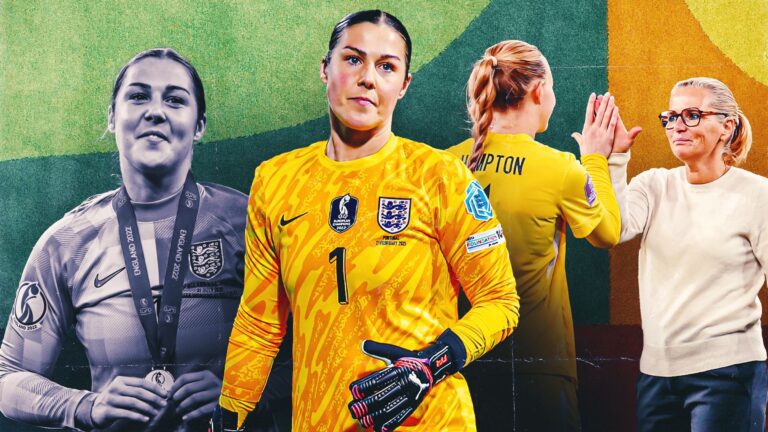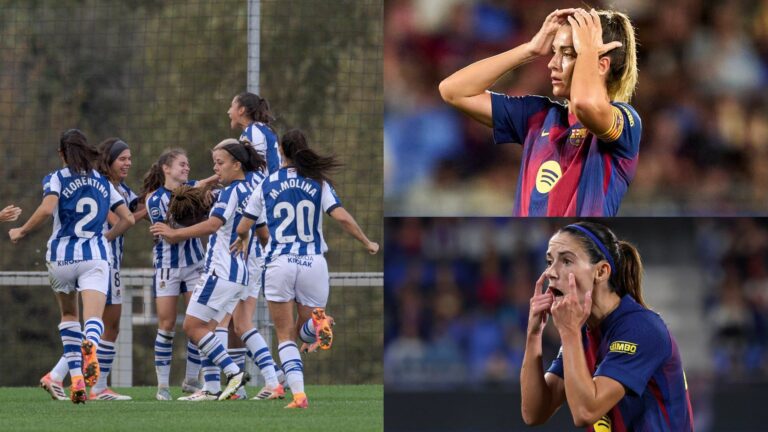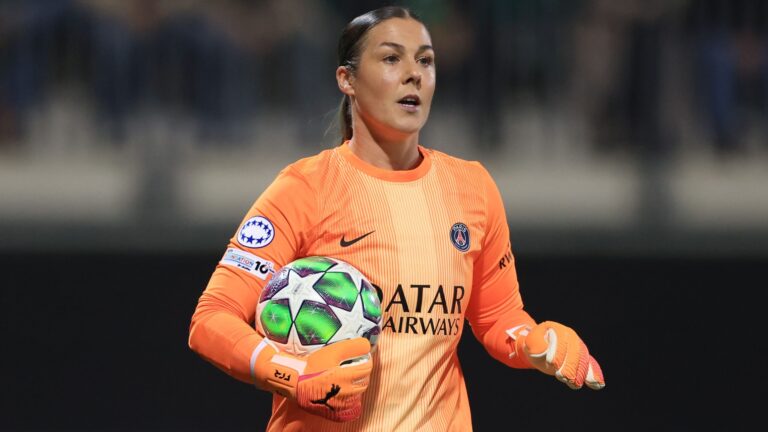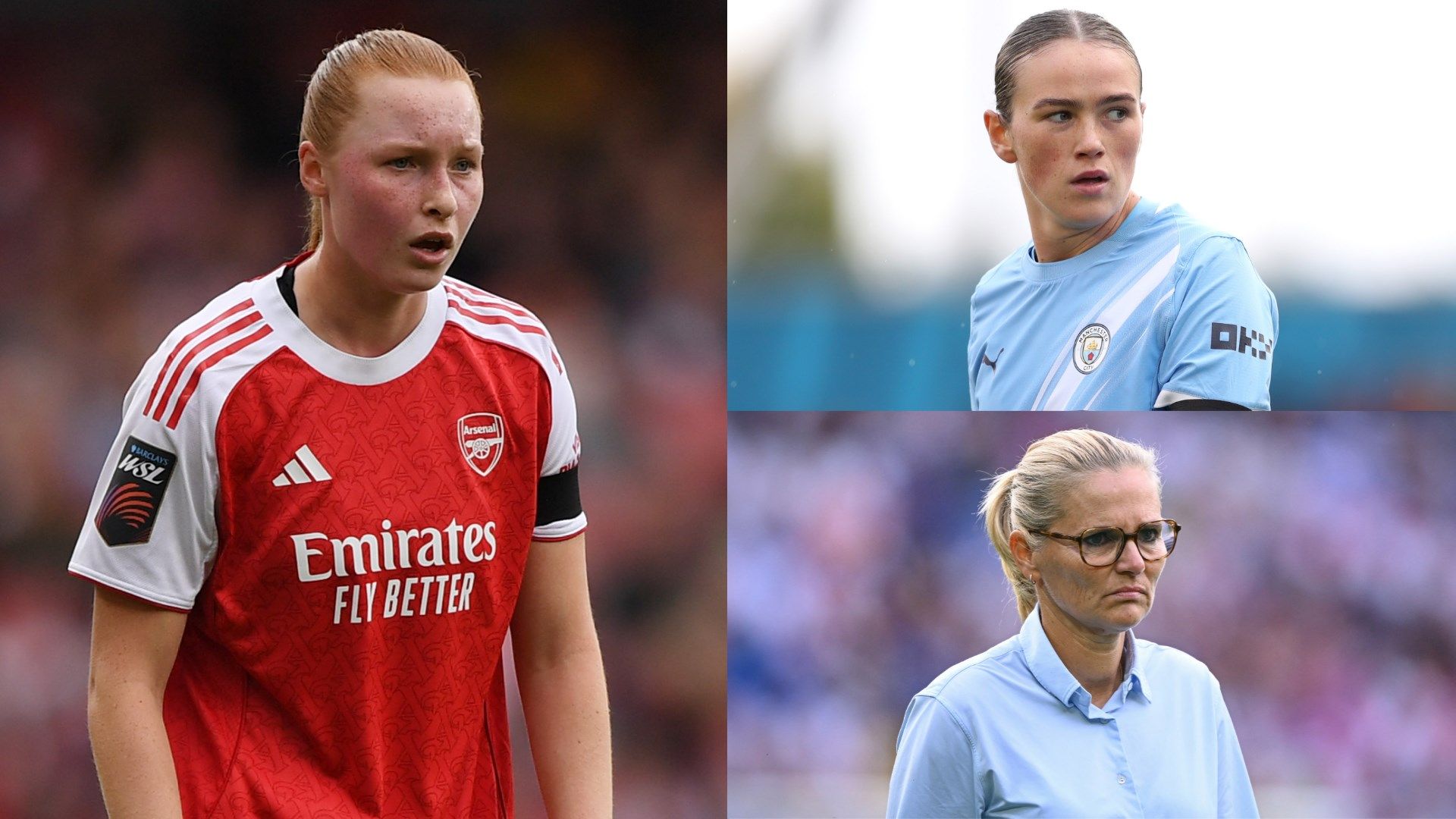
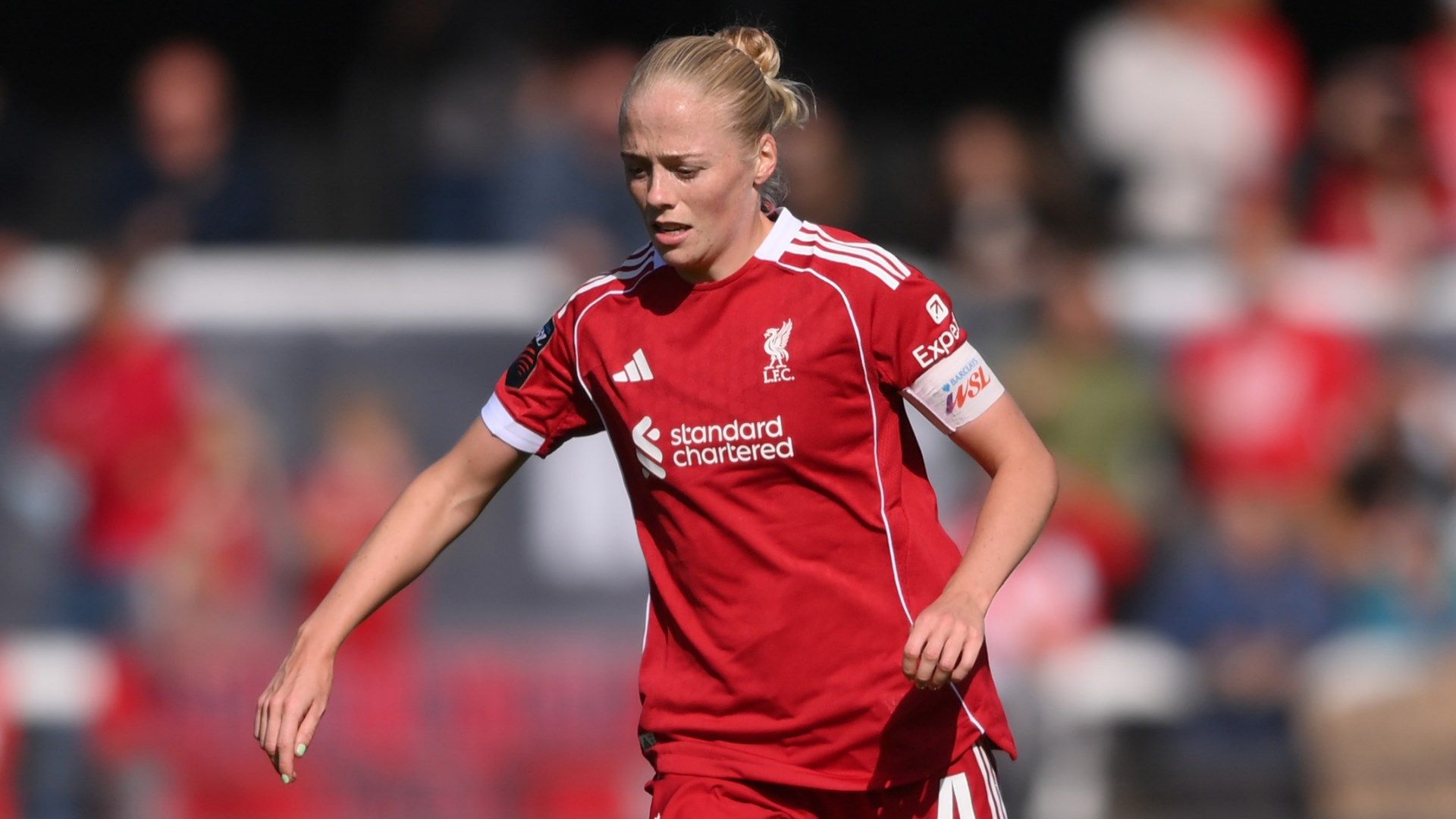
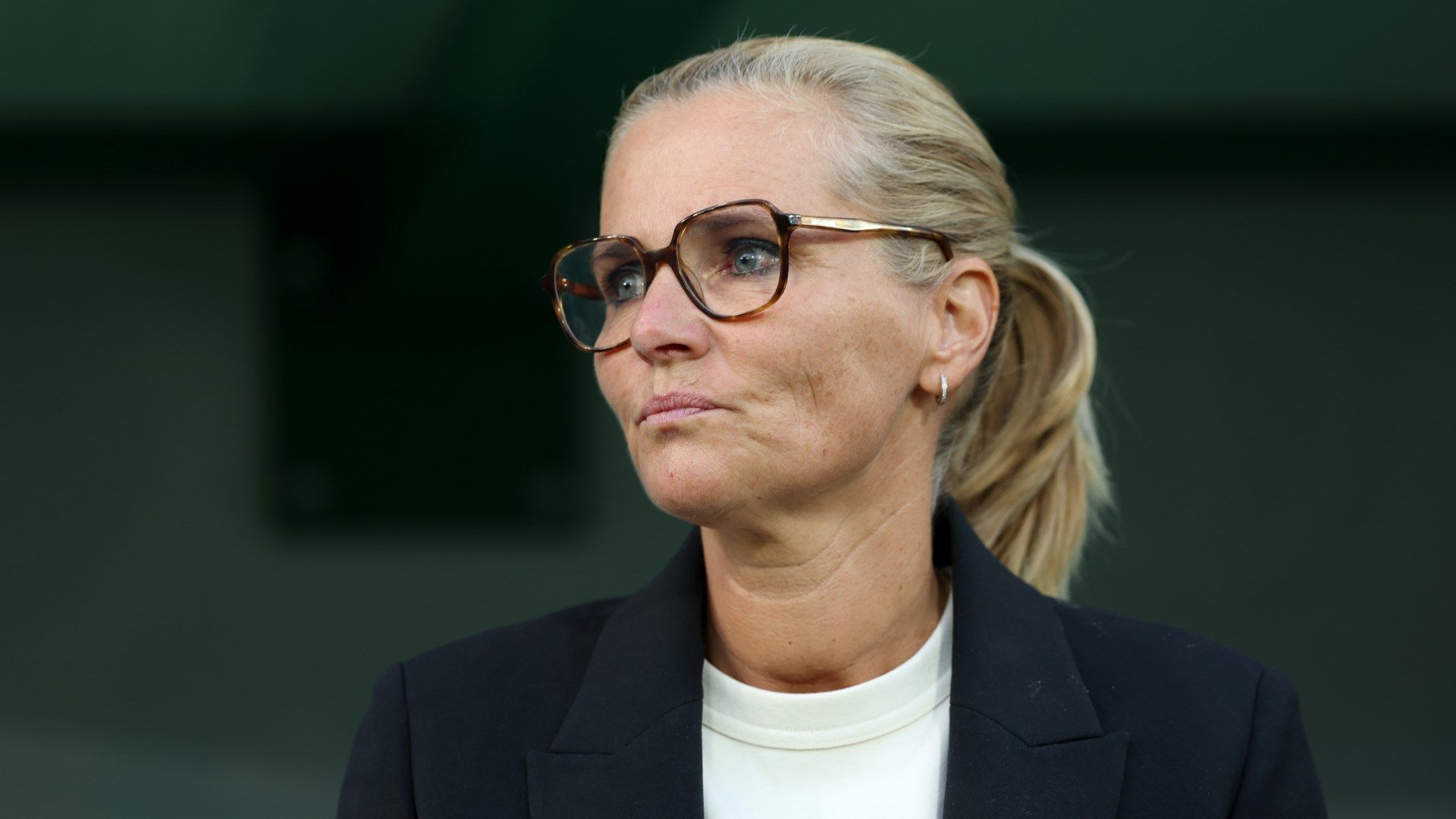
Heartbreak Hits England Squad as Talented Players Pull Out
Katie Reid and Grace Clinton face major setbacks in their international journeys, marking a disappointing turn for the England women’s team. This unexpected development underscores the challenges athletes encounter with injuries, yet it opens doors for emerging talents to step into the spotlight during upcoming matches.
Challenges for Reid Amid Impressive Season Start
Despite her promising performances, Reid’s absence from the England senior camp comes as no real shock, given her recent struggles. The young Arsenal defender sat out their latest Champions League encounter against Benfica due to a groin issue, which hasn’t healed in time for this key opportunity. At just 19, Reid has shone brightly early in the season, stepping up in place of the unavailable Williamson, making her spot in Sarina Wiegman’s lineup entirely justified. Looking ahead, Reid aims to sustain this high level of play once she’s back, with an eye on securing a place in the November selection.
Clinton’s Ongoing Recovery and Frustrations
On the other side, Clinton has been absent for Manchester City’s past two outings, with her coach labeling it as a minor setback. This injury adds to an already tough beginning for the midfielder, who joined City amid ongoing fitness concerns that previously kept her out of Manchester United’s Champions League preliminaries. Now, both athletes are focusing on rehab at their respective clubs to get back on track.
New Opportunities in Defense with Grace Fisk’s Inclusion
With Reid stepping back as an uncapped defender, Wiegman has swiftly brought in Liverpool’s Grace Fisk to fill the gap caused by these setbacks. Fisk’s return to the squad marks her first call-up since early 2020, when she joined the team for the SheBelieves Cup in the US-her initial chance under the previous coach, Phil Neville, rather than Wiegman’s tenure.
Liverpool’s Struggles and Fisk’s Standout Role
Although Liverpool has faced difficulties in the Women’s Super League, failing to earn any points after five matches, Fisk has emerged as a reliable figure for the team. Her familiarity with the England setup stems from her experience in youth internationals, making her a vital addition. This move is especially crucial now, as the defense is already short-handed without Williamson due to injury and Bright following her retirement from international play this month.
Midfield Adjustments Without a Direct Replacement for Clinton
In a surprising choice, the England team has opted not to add anyone to replace Clinton, leaving the squad at 24 players. This decision stands out, considering available talents like Brighton’s 22-year-old captain Maisie Symonds, who earned a call-up in April and has been excelling in midfield, or Ruby Mace, who made her senior debut last December and is performing well at Everton.
Strength in Depth for Wiegman’s Midfield Options
Nevertheless, Wiegman feels confident proceeding with the current group, boasting plenty of depth in midfield. Key players such as Keira Walsh, Georgia Stanway, and Ella Toone remain central, joined by the on-form Laura Blindkilde Brown, while Aston Villa’s Missy Bo Kearns gets another chance, and her teammate Lucia Kendall receives her inaugural invitation.
Exploring New Tactics Amid Absences
The injuries to Reid and Clinton, especially the latter, highlight potential for tactical trials within the Lionesses setup. With several players missing, this camp could serve as a testing ground, particularly in defense, the flanks, and midfield, as the team gears up for friendlies against Brazil and Australia. The first challenge comes against the South American title holders at Manchester City’s Etihad Stadium on October 25, followed by a clash with the Matildas at Derby County’s Pride Park just three days later.
Background on Katie Reid’s Maiden Senior Call-Up
When it comes to women’s football, breakthrough moments like a maiden senior call-up can be life-changing, and Katie Reid’s story is a perfect example. Reid, a talented defender from Leicester City, earned her first spot in the England Women’s Squad for an upcoming international fixture, marking a significant milestone in her career. This call-up generated buzz among fans, as it highlighted the growing depth in England’s talent pool. Keywords like “England Women’s Squad” and “maiden senior call-up” have been trending in discussions around emerging players, emphasizing how such opportunities can propel athletes into the spotlight.
Reid’s selection came after impressive performances in the Women’s Super League (WSL), where her defensive prowess and versatility caught the eye of England manager Sarina Wiegman. For those following women’s football closely, this was a nod to the pathway from domestic leagues to international play, similar to other rising stars who’ve made the leap.
Reasons Behind Katie Reid’s Withdrawal
Unfortunately, not all stories in women’s football end on a high note, and Katie Reid’s withdrawal from the squad serves as a reminder of the challenges players face. According to reports, Reid stepped back due to an injury sustained during training, a common issue in the fast-paced world of elite women’s soccer. This decision was made in consultation with medical staff to ensure her long-term health, prioritizing recovery over immediate participation.
It’s worth noting that withdrawals like Reid’s aren’t uncommon in the England Women’s Squad. Factors such as injuries, personal commitments, or even mental health considerations often play a role. In Reid’s case, her withdrawal alongside Manchester City’s Grace Clinton added an extra layer of intrigue. Clinton, a dynamic midfielder known for her creative play, also pulled out, reportedly for similar reasons related to fitness. This double blow could impact team dynamics, as both players bring unique skills to the table-Reid’s solid defending and Clinton’s attacking flair.
To break it down:
- Injury concerns: Both athletes likely dealt with minor setbacks, highlighting the physical demands of professional women’s football.
- Timing and selection process: Call-ups often occur during busy club seasons, making withdrawals a strategic choice to avoid aggravating issues.
- Broader implications: This event underscores the need for better injury prevention in women’s sports, a topic gaining traction in SEO searches for “women’s football injuries.”
The Role of Grace Clinton in This Scenario
Manchester City’s Grace Clinton has been making waves in the WSL, and her involvement in this story adds another dimension to the narrative. Clinton, who was also called up for her senior debut, represents the next generation of English talent. Her withdrawal meant that fans missed out on seeing her pair up with established stars like Ella Toone or Alessia Russo, potentially affecting the squad’s midfield options.
What makes Clinton’s case particularly interesting is her rapid rise through the ranks. At just 20 years old, she’s already a key player for Manchester City, contributing goals and assists that have boosted her visibility in searches for “Grace Clinton Manchester City.” Her decision to withdraw likely stemmed from a precautionary approach, ensuring she’s fit for club duties and future international windows. This mirrors trends in women’s football where young players are managed carefully to prevent burnout.
- Key achievements of Grace Clinton:
- Scored multiple goals in the WSL, showcasing her offensive capabilities.
- Earned praise for her vision and passing accuracy, making her a vital asset.
- Her call-up was seen as a strategic move by England to blend youth with experience.
Impact on the England Women’s Squad and Future Prospects
The absence of players like Katie Reid and Grace Clinton can significantly alter team strategies, forcing coaches to adapt quickly. For England’s upcoming matches, this meant reshuffling the lineup and giving opportunities to other prospects, which could be a silver lining for emerging talents. SEO terms like “England Women’s Squad withdrawals” often highlight how such changes affect team performance and fan engagement.
In a broader sense, this incident sheds light on the competitive nature of international women’s football. With tournaments like the Euros and World Cup on the horizon, maintaining squad depth is crucial. Reid’s withdrawal, for instance, might open doors for players from clubs like Arsenal or Chelsea, fostering healthy competition.
Here’s a quick look at potential outcomes:
- Short-term effects: Reduced defensive stability for England, as Reid’s style was ideal for countering fast attacks.
- Long-term benefits: Both players could return stronger, contributing to England’s dominance in women’s football.
- Fan and media reaction: Discussions around “Katie Reid maiden senior call-up” have surged online, with supporters rallying behind her recovery.
Challenges and Opportunities in Women’s Football
Delving deeper, events like these reveal ongoing challenges in women’s football, such as the balance between club and country commitments. Reid and Clinton’s situations aren’t isolated; many athletes face similar dilemmas, which is why keywords like “women’s football withdrawals” are increasingly popular in searches for insights into player welfare.
On a positive note, this could spark conversations about improving support systems, from advanced training regimens to mental health resources. For readers interested in the sport’s evolution, it’s exciting to see how these moments pave the way for greater inclusivity and talent development.
To summarize key takeaways in a structured way:
- Player development: Emphasizes the importance of gradual progression to senior levels.
- Injury management: Highlights best practices for athletes in high-stakes environments choć.
- Community impact: Encourages fans to stay engaged with stories like Reid’s and Clinton’s.
This topic not only keeps the conversation alive around “England Women’s Squad” but also inspires the next wave of football enthusiasts to follow the sport’s dynamic landscape.


